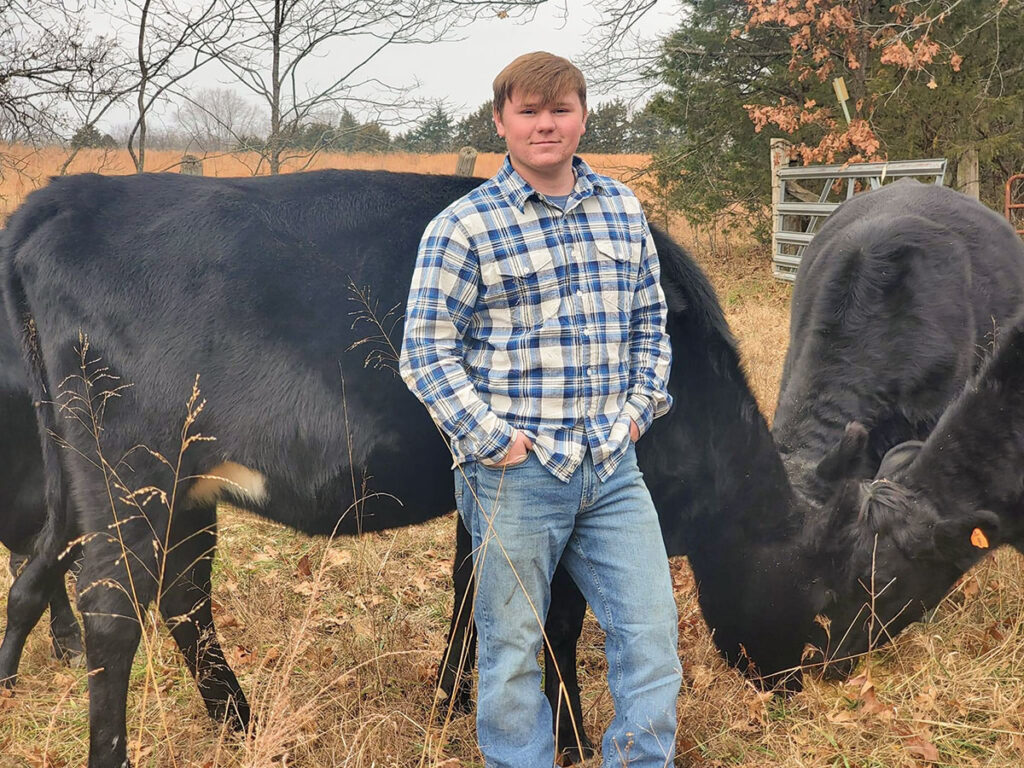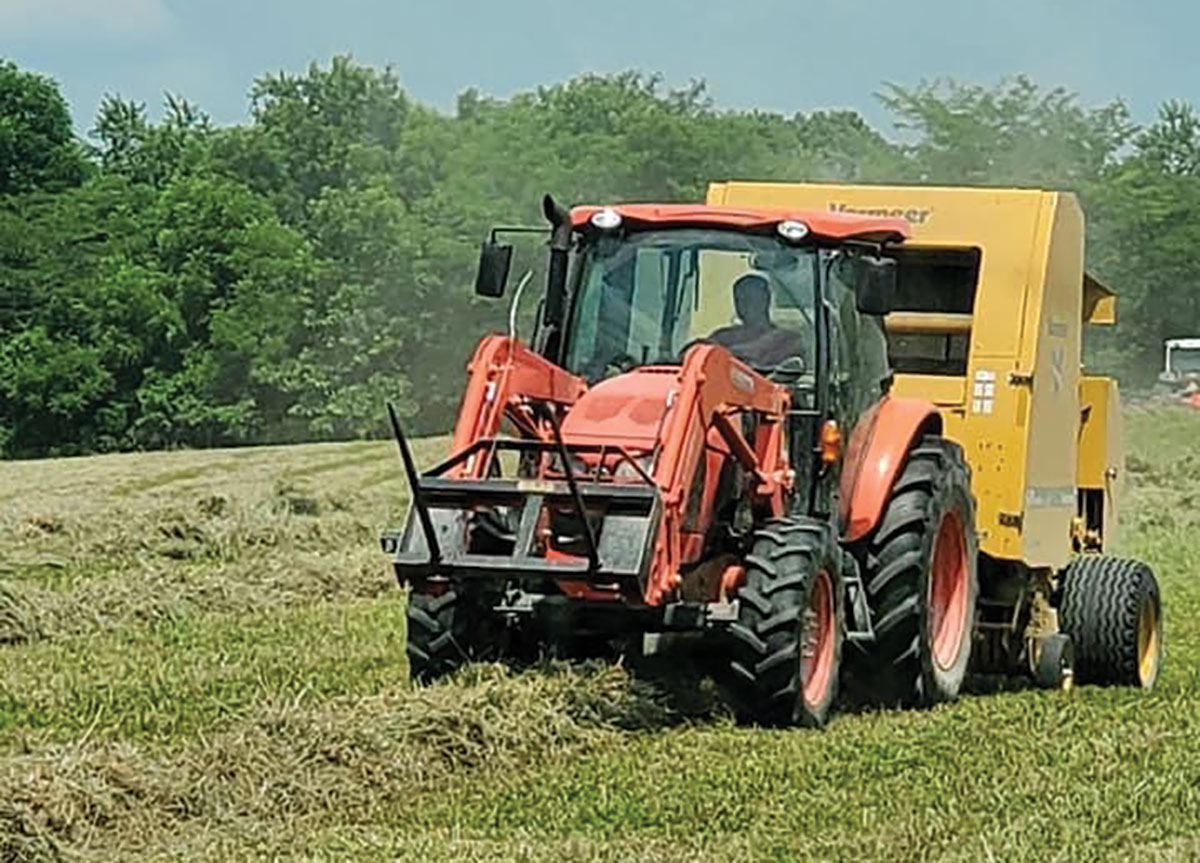
The Enke’s farming operation has grown to become the family’s main food source
NEWBURG, MO. – Tracy Enke grew up dirt poor in a town subdivision but dreamed of one day living in the country and raising her family on a farm.
The urge may have begun when her family traveled to Nowata, Okla., in the summertime to help her grandma tend to the farm chores.
Her husband Roy, a professional who travels across the United States installing medical equipment in hospitals, has often asked Tracy why in the world she wants to farm. “If I don’t farm, what else am I going to do?” Tracy told him.
Just one of the jobs Tracy performs would be a full-time challenge for most people. She’s a real estate agent, presently a foster mom to four boys and drives a bus for Newburg Public Schools.
Perhaps because she was raised as a child without the finer things in life, Tracy also has a passion for being prepared for hard economic times in the worst scenario.
Tracy and Roy own 177 acres, 115 on their homestead and 62 adjacent in a farm where their 18-year-old son Wyatt lives. Wyatt helps on the farm and Roy always takes ‘vacation’ and comes home to put up hay in the summertime. Roughly 500-700 round bales are harvested annually.
Tracy presently raises 40 beef cattle and all currently have calves on them. That’s in addition to six cows.
Tracy said one cow can produce enough butter, milk, cream and cheese to supply two families. At times her foster kids have taken on the project of selling milk to raise extra money. It teaches them not only how to care for livestock but also self-sufficiency and good work ethic. Cows have to be milked every single day regardless.
It also serves as a reminder that marketing farm products will fluctuate greatly in price from time to time. When the price of a gallon of milk was $2, and the cost per jug with a locking cap is $1, the profit margin is already thin to none before even the cost of feeding the cattle is figured.
However, a family of six, with four growing teenage boys, can save money at the grocery store if they don’t have to purchase milk, butter, cream or cheese.
Tracy said, should they fall on very poor economic times, her small herd of six could supply several local families with milk products. Currently, residents of New York are paying $6 a gallon for milk and $5 a dozen for eggs, Tracy said. With current predictions the price of milk may go up to as much as $11 per gallon in stores, Tracy said the Enke family farm can serve as a help to neighbors and friends unable to afford retail.
“If you don’t have your own source of food, I’m afraid you’re going to be in trouble sooner than later,” Tracy said.
She’s chosen to breed a cross between dairy and beef cattle, black Angus and Jersey, to provide both milk and meat products. They are dual purpose. It’s like getting a two in one model.” Tracy explained.
The Enke farm also has a commercial butcher shop and milking operation on the property built by previous owners. The butcher shop was updated and inspected three years ago. Tracy wanted to butcher and sell to the public but, like many entities, has been able to find reliable help for hire.

“The boys aren’t afraid to jump right in there and help when we butcher our own beef,” Tracy added.
In order not to live on beef alone, Tracy said she bought 500 chicks after God put it on her heart to expand so her family would be able to sustain with not only beef, but a variety of meat.
White Plymouth Rock chickens were chosen because they brought Americans through the move from England all the way through the Great Depression, Tracy explained. They lay eggs at 5 months and grow to full size within 12 weeks. They are bred with a dark Cornish rooster, a huge game bird, to make them larger.
Tracy currently has 1,056 eggs in an incubator and two commercial chicken pluckers ready and waiting for butchering day.
Chicken typically sells for $3.95 to $5 a bird when young and when it’s time to butcher, are often cheaper to purchase at the store, Tracy said. She butchers, freezes the meat and has plenty of eggs to use or sell.
She isn’t afraid of bartering either. Tracy traded chickens with a lady who had a pig.
Ten turkeys, a few goats and six older horses round out the Enke family farm.
In addition, she believes it’s a good idea to grow a vegetable garden and stockpile staples that aren’t grown in Missouri. Sugar, coffee, tea, flour, salt and pepper.
Finally, and perhaps most important to being self reliant, according to Tracy, is the goal of becoming debt free.
“The farm equipment is finally paid for,” Tracy said.
Tracy Enke’s childhood dream of raising a family on a farm has been a reality since 1997. She admits to being pretty tired most days, but just can’t imagine anything else she’d rather do.







